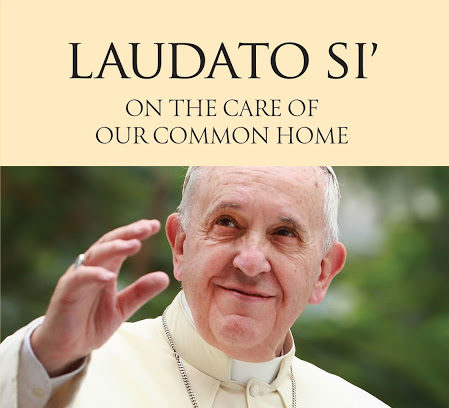
This is the third blog in a three-part series by Niall Leahy SJ entitled “Who are the Localists?” Localism is both a reality and a countervailing idea challenging the globalist extractivist paradigm.
If you search for the word ‘local’ in Laudato Si’, Pope Francis’ letter on the care of our common home, you will discover that the document is peppered with references to all sorts of local concerns, actors and solutions. Although he was a global leader, Francis never lost his love for the local.
Localism is an alternative worldview that many people in ‘developed’ countries are now actively exploring. But reading Laudato Si’ makes you realise that elsewhere, localism is just people and communities doing what they have always done: investing in local economy, local community and local politics. Francis was a global voice for such people.
Local economy
Francis was emphatically on the side of the small farmer. He openly praised the small-scale producers that feed a massive portion of the world’s population “be it in small agricultural parcels, in orchards and gardens, hunting and wild harvesting or local fishing.” Francis trusted small producers to attend to and care for the local ecosystems on which their livelihoods depend.
He was also highly critical of large producers and buyers who use their economies of scale to force smallholders to sell their land or abandon traditional crops. Under the banner of economic freedom, he insisted that authorities have “the right and duty to adopt clear and firm measures in support of small producers and differentiated production.” He could see that the dream of laissez-faire economics has a way of turning into a nightmare.
Here in Ireland, I sense that people are becoming more aware of how the battle of big and small players is playing out in our own country. Overbearing supermarket chains are abusing their power and forcing farmers to produce unsustainably large quantities of cheap food. But support is steadily growing for small producers and sellers who are fighting for food systems that are better for the earth, the farmer, the community and the customer.
Local community and culture
Francis was always looking at reality through several lenses, since “everything is connected.” His economic commentary naturally led to social and cultural commentary too. He lamented the fact that intensive and technocratic approaches to business not only exhaust local ecological resources but also corrode local community, culture, and the social structures that shape “cultural identity and their sense of the meaning of life and community.”
Spaniards know exactly what he is talking about. Mass tourism there has contributed to sky-rocketing property prices, meaning that locals from popular tourist destinations can no longer afford to rent or buy in their home town. Scenes in Barcelona of protestors squirting holidaymakers with water pistols and chanting “tourists go home” tell you how bad things have gotten for them. It’s not that they are fundamentally unwelcoming, but you can’t welcome somebody into your community if there is no community to begin with.
Local politics
The old adage that “all politics are local” would be a stretch for Francis, but he would certainly argue that more environmental politics ought to be local. When it comes to making decisions that affect local economy, community, and culture, he believes that local voices ought to be given “a special place at the table.” His politics are also democratic: “Unless citizens control political power – national, regional and municipal – it will not be possible to control damage to the environment.” At this critical moment in history when we may well wonder if democratic countries can get to grips with the poly-crisis, Francis is saying that we need to become more democratic, not less.
A vision for the local church?
Francis did not write Laudato Si’ solely for Catholics—he wrote it for everyone. However, if you look for it, a vision of the church is to be found in there. Christian communities that embrace integral ecology will not only know each other from going to church on Sunday, but from working and living closely with each other and concretely depending on each other throughout the week. In a hyper-globalised world we have the luxury of ignoring our neighbour because our daily bread comes from afar. Whenever it is made closer to home, we may begin to notice and love our neighbour again.

